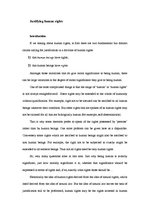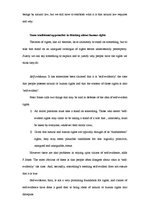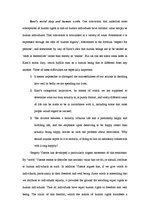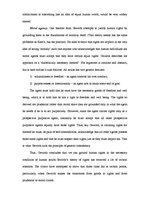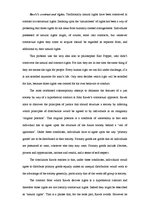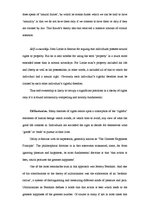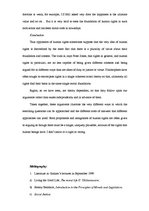-
Justifying Hhuman Rights
Introduction
If we talking about human rights, at first there are two fundamental but distinct claims calling for justification in a doctrine of human rights:
1)that human beings have rights;
2)that human beings have rights.
Amongst those moralities that do give moral significance to being human, there can be large variations in the degree of moral significance they give to being human.
One of the most complicated things is that the range of ‘human’ in ‘human rights’ is not always straightforward. Some rights may be extended to the whole of humanity without qualification. For example, right not to be tortured can be ascribed to all human beings whatever their condition. But other rights that are spoken of as human rights may not be claimed for all that are biologically human (for example, self-determination).
That is why some theorists prefer to speak of the rights possessed by ‘persons’ rather than by human beings. One more problem can be given here as a disputable. Conversely some rights which are ascribed to human beings might also be ascribed to non human beings. For example, the right not to be subjected to cruelty might be extended to all sentient beings. Thus not all rights need be only human rights.
So, very many questions arise in this area. Just why being human is morally significant, just how morally significant it is, whether that significance should be expressed in terms of rights and, if so, exactly what rights those should be……
If we talking about human rights, at first there are two fundamental but distinct claims calling for justification in a doctrine of human rights: 1) that human beings have rights; 2) that human beings have rights.

